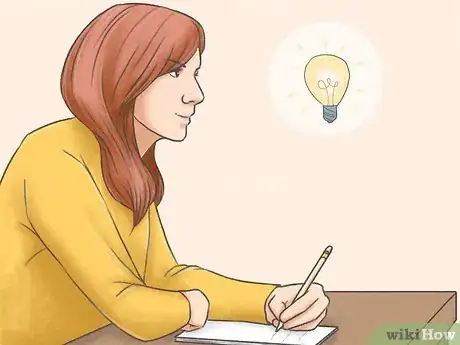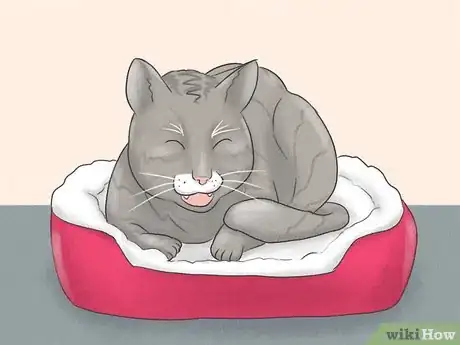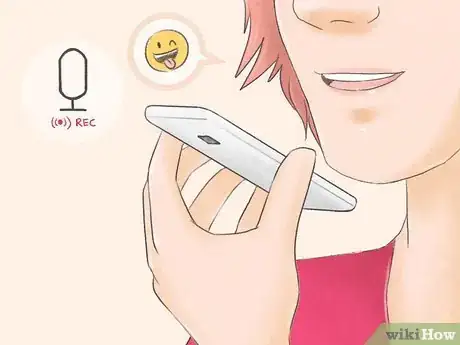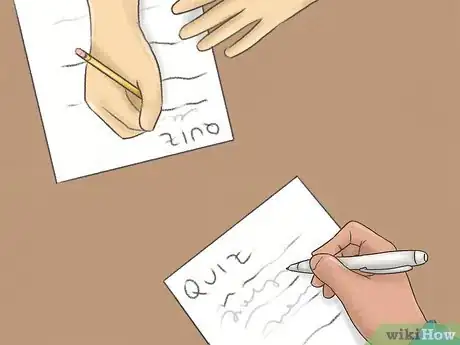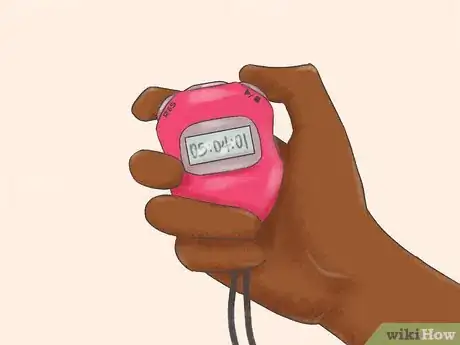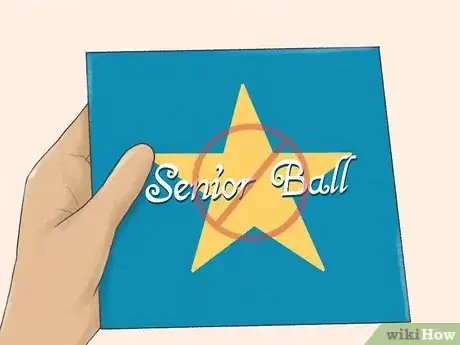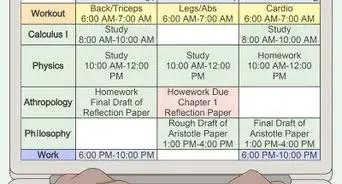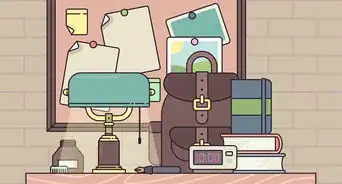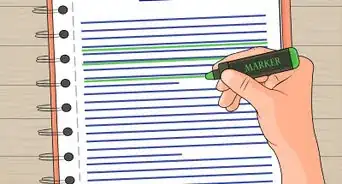This article was co-authored by Jai Flicker. Jai Flicker is an Academic Tutor and the CEO and Founder of Lifeworks Learning Center, a San Francisco Bay Area-based business focused on providing tutoring, parental support, test preparation, college essay writing help, and psychoeducational evaluations to help students transform their attitude toward learning. Jai has over 20 years of experience in the education management industry. He holds a BA in Philosophy from the University of California, San Diego.
There are 12 references cited in this article, which can be found at the bottom of the page.
wikiHow marks an article as reader-approved once it receives enough positive feedback. This article received 26 testimonials and 91% of readers who voted found it helpful, earning it our reader-approved status.
This article has been viewed 729,128 times.
If you find studying boring and difficult, why not make it fun? From making your environment more conducive to improving your concentration, there are various ways to make studying more than just a boring task.
Steps
Studying Alone
-
1Try interactive learning software. You can use them to make things more interesting, turning study into gameplay. If you are not the tech type, you can have an older sibling/parent/guardian make a game for you.[1]
-
2Use music. Put on some music that has catchy, relaxing tunes. Never use music or songs that have lyrics to them; they will divert your attention from and take your mind off of studying (unless you can zone out lyrics).[2] Something in the electronic music genres such as pop or jazz is also great for this. If you do not like music, you can keep thinking about a favorite scene in a book or movie that you like.Advertisement
-
3Keep snacks close. Get together some healthy snacks to nibble on as you study. Allowing yourself a little nibble every now and then helps the study time to pass more pleasantly. Also, it is often effective if you use snacks as a form of treat for yourself every time you complete a part of the work. Don't have a huge bag of chips - try to have something simple such as an apple or banana. Vitamin B is great but an occasional treat is okay like hard candy is fine because you don't need attention about that. Something with a lot of B vitamins such as nuts are great for studying because B vitamins are great for brain fun hours, no matter what. Decorate your spot with favorite things like postcards, knick-knacks, figurines, notes from friends etc. Even temporary spaces can be decorated with bits and pieces you keep in a portable box. But, try not to make your study area too distracting. The less clutter in your study area, the better.[3]
-
4Provide good lighting and a comfortable chair which is at the right height for the desk. Nothing makes study more difficult than feeling uncomfortable as you sit and not being able to read the work properly. This is especially true in the winter months. It is also good to study near a window or natural light because that will have a bigger boost in energy than artificial light.[4]
-
5Ensure adequate ventilation. Nothing sends a person to sleep faster than lack of air. Get fresh air into your room regularly - even in winter! Make sure it circulates, even if this means using a fan in winter to blow around warm air; this is better than stale, stagnant air.
-
6Have good temperature levels. Being too hot or too cold will make studying hard and you'll be tempted to crawl off to somewhere more comfortable. Turn the heating on or the cooling if you can. If you can't, then improvise and do what most students have always done to heat and cool: open or close windows & doors; use a red heat lamp at your feet (uses a lot less electricity); use a blanket; remove or put on extra layers; drink hot or cold drinks; put on a fan etc.
-
7Get cool or creative stationery and desk gear.[5] Your supplies can encourage you to study - a pen that feels just right in your hand, paper that is so soft the pen glides over it, a book stand that stops your book from slumping over, a row of colored highlighters begging to be used and a scented eraser that smells delicious. Think of the things that you enjoy having around you at study time and make these your little props for amusing yourself with during the study. Don't let them distract you from the study though!
-
8Schedule time slots for study and other times for play. Don't make your study a never-ending process. Give it its time slot and devote yourself to it during this times and then reward yourself with the things you really feel like doing afterwards. Use the study time effectively, don't doodle, feel sorry for yourself or call up friends. That just stretches out the pain and increases your lack of interest. Assign the tasks to be done, do them and then forget about it and go and do the other stuff that you feel like doing. Also if you wanted to you could take a longer break and in the summer go start an ice cold lemonade stand and have friends help you enjoy yourself. Once it's time to come back in you can feel good and finish your studies while feeling good about your self.[6]
- People who take semi-frequent breaks are more productive than people who work hours and hours on end.[7]
-
9Look at your study from a different perspective. Maybe it's study in an area you really dislike or you just don't care about. Try to think outside the actual pages before you and put the topic into a wider perspective. Think of the sorts of careers people have using this study topic; think of how everyday problems are solved using the techniques that the study is requiring of you. This can help to enliven otherwise dull matter and can also impress a teacher if you show how this knowledge applies elsewhere in some way. It demonstrates application to the topic in spite of your reservations. And hopefully, it also helps to chase away the boredom of it.
-
10Realize that study is about more than the topic before you. Sure, it might not grab you the same way that a basketball game outdoors would or a TV show you're missing because of the study. All the same, you're learning coping skills. You're learning how to prioritize, how to be patient and how to deal with something you don't like or feel disinterested in. Perhaps it doesn't feel like it at the time but these are some of life's most important skills because you'll come up against the temptation to fall into boredom many times - during work, a meeting, ceremonies, even parties! You're also learning about the general way the world works and where you might best slot into it yourself. How can you be sure you do or don't want to do things in life unless you know about them first?
-
11Get a pet to encourage you! If you have a household friend, such as a cat or a fish, you can have them around you as you study. Purring cats provide a great source of rhythmical comfort that can ease the studying time and a fish swimming around and around can do wonders for reminding you that it's worth studying so that you can become a bigger fish in a sea of many. And some of you may be thinking wait a minute what about dogs... well dogs are great companions for studying if they are trained they should be quiet when you are hard at work and playful when you are ready for a break.[8]
-
12Take breaks. Frequent, short breaks are better for you and your thinking processes than infrequent, long breaks.[9] Set an alarm on your computer or on a clock to go off every half hour and go for a stretch, get a coffee or milkshake, see what the weather's like outside. No matter how old you are, try to make your material into a game. It works so well. If you have a younger brother or sister, let them help you. Make up a song or a rap about your material. You would be surprised by how much it helps.[10]
-
13If you are doing word problems in math, change the problem to make it more interesting or even a bit silly. For example: Beth has 5 apples. If she goes to the apple orchard and picks 5 times the amount of apples she already has, but drops 3 on the way home how many apples she have now? Isn't that a boring problem? You can make it more interesting. For example: Mr. Gidget has 5 bubbles. He goes to the magical bubble island and his friend Mr. Gadget gives him 5 times the amount of bubbles he already has. If Mr. Gidget drops 3 of the bubbles into a pit filled with needles, how many bubbles does he have? Isn't that better? If you use funny names, objects you like, or made-up places, the problem is 10 times more interesting, making it more likely that you will solve it.
-
14If you like music, create a short song about the general points of what you're studying. If you don't have time to make a song, search YouTube. Chances are is there will be some sort of relevant song. You might want to start with the Animaniacs (e.g., Nations of the World, Wakko's America, and Multiplication). If you are the creative type take a song and wipe out all the lyrics and put your study material in there and sing it to the tune of your chosen song. If you just sing their songs to yourself it can help you to ace that test! Be sure to print out the lyrics to the songs and make it a point to sing the song at least once a night so you'll remember it.
-
15Make flash cards. The best site on the internet to make flashcards on is Quizlet. When making your flashcards, always do the term in capital letters and the definition in lowercase letters. Using different handwriting, colors, and decorating your flashcards will help you remember them. Be sure that you actually USE your flashcards. Just making them won't do anything for you at all.[11]
-
16Go over your notes and draw pictures. For example, If one of your notes is "Ohio produces more cheese than Wisconsin", draw some cheese and a picture of Ohio smiling and Wisconsin frowning. This works really well if you are a visual learner.
-
17Make an easy retrieval table. Get a piece of large A4 paper and rule a table. Use bright color pencils, highlighters etc. and make a color order. For example,for history you could use neon green for dates, blue for the names of important people, and purple for what significant things they did.
-
18If you are reading your textbook, use funny accents or weird voices. It is also good if you record yourself and listen to the recording at least once every night. This is helpful in literature and history textbook.
-
19Use mnemonic devices.[12] For example, the 5 great lakes = HOMES (Huron, Ontario, Michigan, Erie, Superior) However, make them creative so that you can easily remember them. A creative one for remembering the eight levels of classification is Dumb King Philip Came Over From Greece Sneezing (Domain, Kingdom, Phylum, Class, Order, Family, Genus, Species) Or you could do, King Henery Died Unexpectedly Drinking Chocolate Milk {Kilo, Hecto, Deca, Unit, Deci, Centi, Milli}
-
20Make small posters that you can hang up around your room or around your house. Decorate them and draw pictures. On the night before the test or quiz, present and explain them to your family.
-
21If you need to study for a spelling test, eat alphabet cereal in the morning! Have a parent or sibling read a word from your list to you. If you spell the word correctly with the cereal, you can eat it![13]
-
22Are you an IT/computer person? If you work well with computers, you don't have to stick to handwriting your notes, which can take forever and it can be very mind-numbing. Go ahead and use the computer if you find it much easier to type. You could create a cool animation with a voice-over, a Prezi presentation, a multimedia PowerPoint slideshow with music, pictures and video. If you write your notes on a Word Document, personalize them by creating your own personal logo and using it as a letter-head - and that way nobody can steal your notes.
-
23Pretend you're a teacher and create a test or quiz that you can take yourself or make your older sibling(s) and/or parent(s) take. Have a parent or older sibling that didn't take the test grade it. If you feel confident, you can grade it yourself.
-
24If you have to take a test on some boring book in English class, try replacing the characters in the story with characters from video games, TV shows, or characters from any other forms of media if you can. This makes the material a LOT more interesting.
-
25Try a change of scenery.[14] Pack up your textbook, notes and binder and try heading to your local coffee shop or library. Bonus: someone there may be able to help you with your homework!
-
26Just try your best, don't overtax yourself and you'll do well.
-
27The more fun, the more worthwhile! Play math games online or play a writing game on paper!
-
28Try writing spelling words out 5 times. This will help you memorize them quickly.
Studying with Others
-
1If you have an older sibling at home, you can study together so you have company. If you do not have one, you can ask your mom whether you may go over to your buddies house (that is in your class) and maybe play a studying game, but be sure to get the needed studying done.
-
2Talk out loud. Everyone learns differently, and for some, talking out loud helps cement ideas into your head. Discuss sample test questions or homework problems with each other.[15]
-
3Quiz each other.[16] Take turns asking each other questions, or quizzing each other on vocab words.
-
4Race against each other. Set the timer and see who can finish filling in their worksheet/writing their notes the fastest. The slowest person loses. However, this method might not be the best method as it isn't always fair - some people would rather take their time.
-
5Invent crazy punishments to motivate you and your friends if you just can't be bothered studying. For example the first person to leave without finishing their assignment isn't allowed to go to the upcoming school formal.
-
6You can create a scenario and make a short play or skit with a friend. Pretend you're a character from TV or Broadway etc - or make up your own character. Physically turn your notes into a script and memorize your 'lines' by talking it out loud, over and over again. Then when you memorize the entire script, talk out loud as you would if you were your chosen character. You could even use funny accents if you like, you could even sing it Broadway-style. If you're really confident, you can perform the skit in front of friends, teachers, parents etc...and make them laugh! It helps if you are a tactile learner (you learn by touching) or a verbal learner (you learn by talking). It seems a bit crazy at first but when you think about it, it actually works, especially if you do it with a friend. By looking at it this way, it doesn't seem like boring study at all!
-
7Study in the same place quietly, and take a break every half hour or hour. Do something fun, such as watch TV or play video games or a board game.
Expert Q&A
-
QuestionHow can I study for an AP test?
 Jai FlickerJai Flicker is an Academic Tutor and the CEO and Founder of Lifeworks Learning Center, a San Francisco Bay Area-based business focused on providing tutoring, parental support, test preparation, college essay writing help, and psychoeducational evaluations to help students transform their attitude toward learning. Jai has over 20 years of experience in the education management industry. He holds a BA in Philosophy from the University of California, San Diego.
Jai FlickerJai Flicker is an Academic Tutor and the CEO and Founder of Lifeworks Learning Center, a San Francisco Bay Area-based business focused on providing tutoring, parental support, test preparation, college essay writing help, and psychoeducational evaluations to help students transform their attitude toward learning. Jai has over 20 years of experience in the education management industry. He holds a BA in Philosophy from the University of California, San Diego.
Academic Tutor The College Board posts extensive amounts of YouTube videos that are AP exam-specific. There are hours and hours of them for every AP exam, so try to choose ones that are most relevant to what you need to learn. You can also set your YouTube speed function to 1.5 speed, which can help you go through those videos a little faster.
The College Board posts extensive amounts of YouTube videos that are AP exam-specific. There are hours and hours of them for every AP exam, so try to choose ones that are most relevant to what you need to learn. You can also set your YouTube speed function to 1.5 speed, which can help you go through those videos a little faster. -
QuestionIs it better to study with a company or alone?
 Community AnswerThe answer to this depends on your personal preferences. Some people find that the study group or pair option helps them to stay motivated and learn a lot through exchanging information, testing each other and discussing hard problems, etc. However, others find it to be distracting, especially if it ends up in gossiping, playing games or chilling out instead of studying. You'll need to try both ways out, to assess what works best for you, without assuming there is either a right or a wrong way.
Community AnswerThe answer to this depends on your personal preferences. Some people find that the study group or pair option helps them to stay motivated and learn a lot through exchanging information, testing each other and discussing hard problems, etc. However, others find it to be distracting, especially if it ends up in gossiping, playing games or chilling out instead of studying. You'll need to try both ways out, to assess what works best for you, without assuming there is either a right or a wrong way. -
QuestionHow do I not get distracted while I study?
 Community AnswerThe best way is to not be at home where there is a large amount of distractions. Try going to a library or somewhere where you're forced to sit and study. Make sure you put your phone on vibrate and only check it when you take breaks (every 30 minutes).
Community AnswerThe best way is to not be at home where there is a large amount of distractions. Try going to a library or somewhere where you're forced to sit and study. Make sure you put your phone on vibrate and only check it when you take breaks (every 30 minutes).
Warnings
- Don't ever promise yourself you'll just watch one show, just listen to one song, just check one email, or "just do one" anything. You'll end up losing track of time and get hooked into the TV, iPod, emails, or whatever it is.⧼thumbs_response⧽
- Don't overeat to reduce stress and get adequate sleep during times of cramming, swotting etc. No need to make yourself ill - it's another of life's lessons about taking everything in your stride and coping well.⧼thumbs_response⧽
- For music: you can get too much into it and pay more attention to the rhythm than the study. Turn it off if this is happening to you. Not everyone can tolerate music or noise while studying.⧼thumbs_response⧽
- Note that if you have heavy, continuing stress, it could be time to talk to a doctor.⧼thumbs_response⧽
- Don't get down over study hurdles. Everyone can have mental blocks, gets fed up and needs for time-out from any activity, even for a period of time. Be gentle on yourself, take a break and get yourself back together again before you give up on your studies. Also, seek assistance if you have special learning disabilities; there are excellent, trained assistants in many schools and universities on call to help out. Have faith - they're there to help you, not to tell you that you can't do it.⧼thumbs_response⧽
References
- ↑ https://www.unicef.org/serbia/en/open-digital-educational-tools-interactive-online-teaching-and-learning
- ↑ https://www.oxford-royale.co.uk/articles/10-ways-fun-study.html
- ↑ https://share.upmc.com/2019/08/healthy-snacks-to-power-studying/
- ↑ https://opentextbc.ca/studentsuccess/chapter/learning-environment/
- ↑ https://www.oxford-royale.co.uk/articles/10-ways-fun-study.html
- ↑ https://www.youthcentral.vic.gov.au/study-and-training/help-with-study/how-to-study-better/top-10-study-tips
- ↑ Jai Flicker. Academic Tutor. Expert Interview. 20 May 2020.
- ↑ https://www.cdc.gov/healthypets/keeping-pets-and-people-healthy/how.html
- ↑ Jai Flicker. Academic Tutor. Expert Interview. 20 May 2020.
- ↑ https://health.cornell.edu/about/news/study-breaks-stress-busters
- ↑ https://usm.maine.edu/agile/using-flashcards
- ↑ https://www.utep.edu/extendeduniversity/utepconnect/blog/november-2017/4-memory-techniques-for-successful-study-sessions.html
- ↑ https://www.readingrockets.org/strategies/alphabet_matching
- ↑ https://www.oxford-royale.co.uk/articles/10-ways-fun-study.html
- ↑ https://learningcenter.unc.edu/tips-and-tools/metacognitive-study-strategies/
- ↑ https://www.youthcentral.vic.gov.au/study-and-training/help-with-study/how-to-study-better/top-10-study-tips
About This Article
While studying can feel boring and difficult, there are ways to have fun while doing it. Try making your studying more like a game by using interactive learning software or having a family member or friend quiz you. If you’re creative, try writing a song about the general points that you need to study. You can also make some colorful flashcards that you can decorate during study breaks, or read your textbooks in a funny accent or weird voice. Another creative way to study is to pretend you’re the teacher and lecture your siblings or stuffed animals on your test material. To learn how to make studying fun with friends, keep reading!










